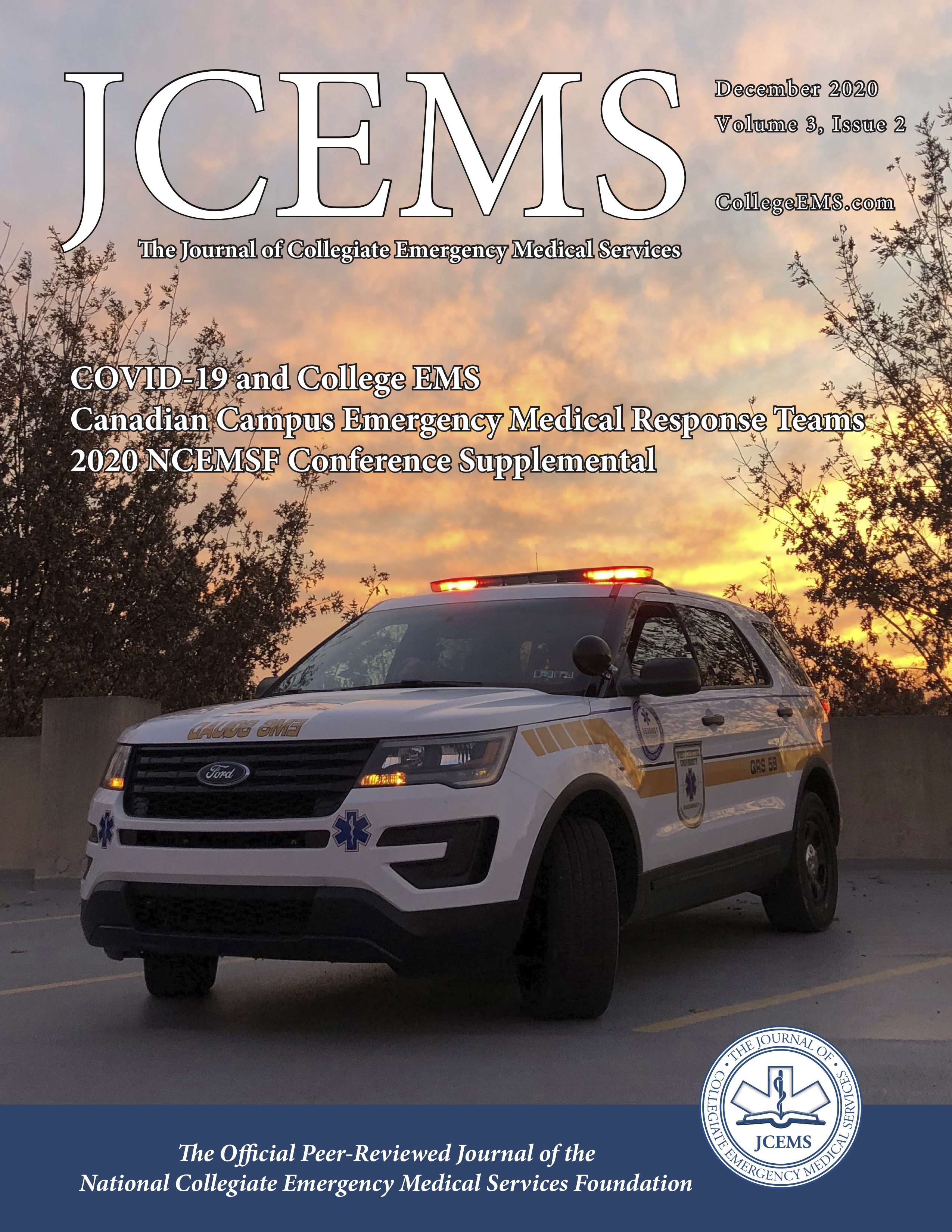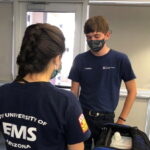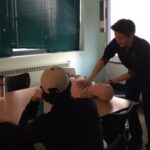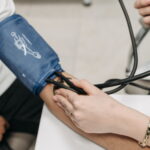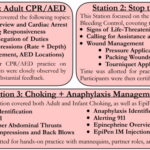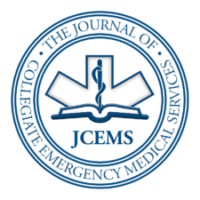Inside Volume 3, Issue 2
Continue to the categoryMaintaining Collegiate EMS Readiness During COVID Campus Closures
Alatis and Nable discuss the impact of COVID-19 on campus EMS organizations and how teams can maintain operational readiness throughout the pandemic.
How the Blue Hens are Responding to COVID-19
Amid a global pandemic, JCEMS talks with he University of Delaware’s EMS Squad Director of Public Relations about shifts, PPE, recruitment, and more.
A Survey of Canadian, Student-Run Campus Emergency Medical Response Teams
Formosa et al. provide an overview of Canadian student-run campus emergency medical response teams, examining aspects including training, operations, and organizational status.
Reflecting and Rebuilding after 2020
The JCEMS Team reflects on the challenges of 2020, the courage and compassion of collegiate EMS providers, and the next steps for the collegiate EMS community to move forward.
Inside Supplemental – 2020 Academic Poster Session
Continue to the categoryImplementation of a Peer Support Program for Campus First Responders
The implementation of Peer Support is one step CUSERT has taken towards improving mental health support for campus first responders.
Naloxone Training and Distribution Program in an Urban Collegiate Setting
MERT worked with physicians from Penn Medicine’s Emergency Department to develop a 1-1.5 hour bystander naloxone training curriculum.
The Relative Importance of Vital Signs in Campus-Based Emergency Services
This study examined the vital signs of patients of the University of Texas at Dallas' BLS response team and compared them to established standards of upgrading to ALS.
Assessing the Adequacy of Behavioral Health Training for Collegiate EMTs
This study aimed to assess EMT self-reported preparedness for behavioral emergencies and to compare behavioral call experience to preparedness.
Heart Rate and Heart Rate Variability as Indicators of Stress in Emergency Medicine Residents...
The authors measured stress-induced heart rate and heart rate variability of emergency medicine residents during a pulseless electrical activity cardiac arrest scenario.
Promoting Youth Emergency Preparedness through Lifesaving Emergency Skill Workshops
Members of Harvard CrimsonEMS expanded outreach to high-school students to create a more medically-literate youth community.
Development of a Mass Gathering Medicine Training Program for Novice Collegiate EMS Providers
New training and protocols have promoted better team dynamics, higher staff confidence, and more efficient patient care.


